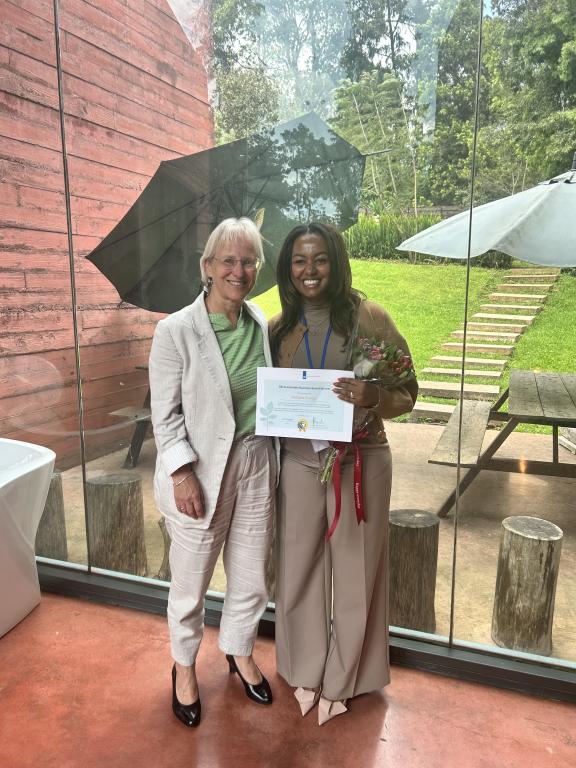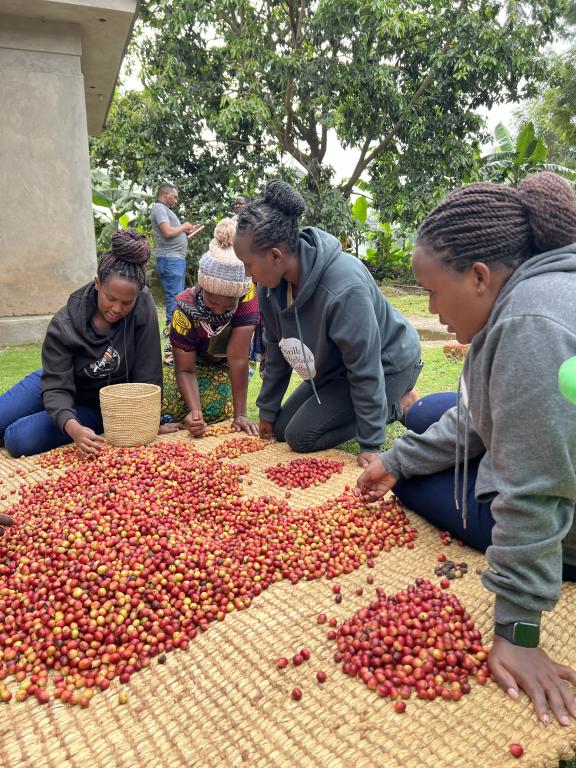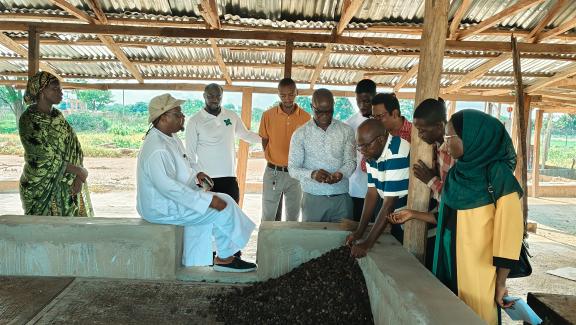Kabana Design wins the CBI Sustainable Business Award 2025
Many companies CBI works with have unique missions and initiatives that create a positive impact. To make sure their stories are heard, we relaunched our business award in a new form: the CBI Sustainable Business Award 2025. It aims to reward and recognise the frontrunners in the sustainability field, inspire other small and medium-sized enterprises (SMEs) and create more visibility for the participants. The main prize: a tailor-made study trip to the Netherlands, with access to a valuable network and a chance to connect with Dutch importers.
Thanks to this initiative, we highlight companies driving change through innovative business practices and show how business and sustainability go hand in hand.
From side business to sustainable pioneer
Semhal Guesh, the leader of Kabana Design, won the CBI Sustainable Business Award 2025. Kaba Design started as a side business and now makes high-quality leather bags, fashion accessories and other durable goods. The Ethiopian company showcased their innovative approach to sustainability in the leather industry, by tackling leather waste through upcycling and giving it a new life – turning offcuts into furniture, baby shoes or dog collars. They also work with leather suppliers to improve chemical management and water-saving practices. As a part of Ethiopia's Green Legacy Initiative they regularly plant new trees and as one of the few in the industry, actively monitor their CO₂ emissions.
With a focus on women's empowerment, Kabana provides fair wages and takes pride in creating a safe working environment for women from vulnerable backgrounds, such as women displaced by conflict or violence or disabled workers. They have the results for it – the turnover rate is much lower than the industry's average. Kabana also believes in building strong relationships with communities around them, working with women artisans to create basket bags. They source 92% of their materials locally, supporting local suppliers and reducing carbon emissions.
Kabana's impactful story moved the jury: a case in point of how a business can be a force for good and build a stronger, greener tomorrow. Seeing Semhal's reaction to the win was a special moment and a powerful reminder of the passion and hard work behind the scenes. She says, "it's a celebration that a business becomes a force for good. It shows that an African brand can lead with integrity, creativity and responsibility," reflecting the purpose of this event.

Sustainable Business in Action Webinar
On October 7, CBI hosted the Sustainable Business In Action Webinar. The goal was to celebrate the SMEs leading in sustainable business practices and give them the podium. CBI colleague Esther Verhaegh (Advisor Corporate Social Responsibility) hosted the event. Marchel Gerrmann (Director Sustainable Economic Development at the Ministry of Foreign Affairs of the Netherlands), together with Judith Arends (Managing Director at CBI) had the honour of announcing the winner of the award.
During the webinar, the participants got the chance to learn more about the companies and their journeys during a conversation on sustainability moderated by Anitra van der Kraan, one of the judges and a Project Coordinator Funded Programs at TradIn Organic. As a company rooted in sustainability, TradIn sources premium, organic food ingredients for the food industry in international markets, with a portfolio of products from 60 different origins. Beyond the trade, TradIn actively works towards building strong, sustainable systems through projects aimed at improving sourcing and agriculture practices.
The participating companies share the same goals, such as ethical sourcing or close relationships with farmers and local communities. With her background and expertise at TradIn Organic, Anitra has brought a new perspective to the conversation, emphasising the power of collaboration on the path to a more sustainable future.
We also want to thank the Ministry of Foreign Affairs, as well as the Embassies of the Kingdom of the Netherlands in Ethiopia, Uganda and Nigeria for their involvement and helping to make this event possible and successful.

Sustainability stories
The independent jury, consisting of Isabelle van Tol (Head Trade for Development at Ministry of Foreign Affairs of the Netherlands), Marcel Vernooij (Director Public Sector Engagement at IDH) and Anitra van der Kraan (Project Coordinator Funded Programs at TradIn Organic), had a difficult task: selecting three finalists among inspiring cases from all around the world. Starting with 62 applications from 21 countries, the jury narrowed it down to 10 impressive companies. In the end, Kabana Design, and the two runner-ups, Salid Agricultures and Gorilla Highlands Coffee, inspired the judges the most.
Salid Agriculture from Nigeria is a manufacturer of shea nut and butter, as well as an exporter of a wide range of edible oils. The company stood out in its effort to build a sustainable shea value chain that empowers women and protects the natural environment. They develop and improve sustainable harvesting practices and plant shea trees annually, creating awareness around climate change impacts and carbon emissions. Their social initiatives include improving labour conditions and promoting gender equality. Salid provides over 45,000 women shea collectors with training programmes and fair wages, investing in their futures and building new skills, such as financial literacy. Salid also invests in renewable energy and converts shea waste into bio-energy, preserving Shea trees and their ecosystems.

Gorilla Highlands Coffee from Uganda impressed the judges with its commitment to local communities and forest protection. As a fair trade and sustainable coffee plantation, they offer 100% organic coffee, mostly Arabica Bourbon beans. They aim to solve challenges in the coffee farming community: increasing biodiversity and forest health and investing in their community. They work with over 1,200 smallholder farmers on earth-friendly farming techniques that protect mountain gorillas and biodiversity. Their school coffee clubs and Kawacare program provides education and healthcare to local communities and training opportunities: former poachers become coffee farmers and eco-guides, while women gain new skills.

Together towards a more sustainable future
With the CBI Sustainable Business Award 2025 being a success, we are proud to look back on the impactful work of each participating company through the years. Their efforts, values and dedication played a key role in making this event so special and we feel even more inspired looking forward. To everyone who joined, thank you for celebrating sustainability in trade with CBI!